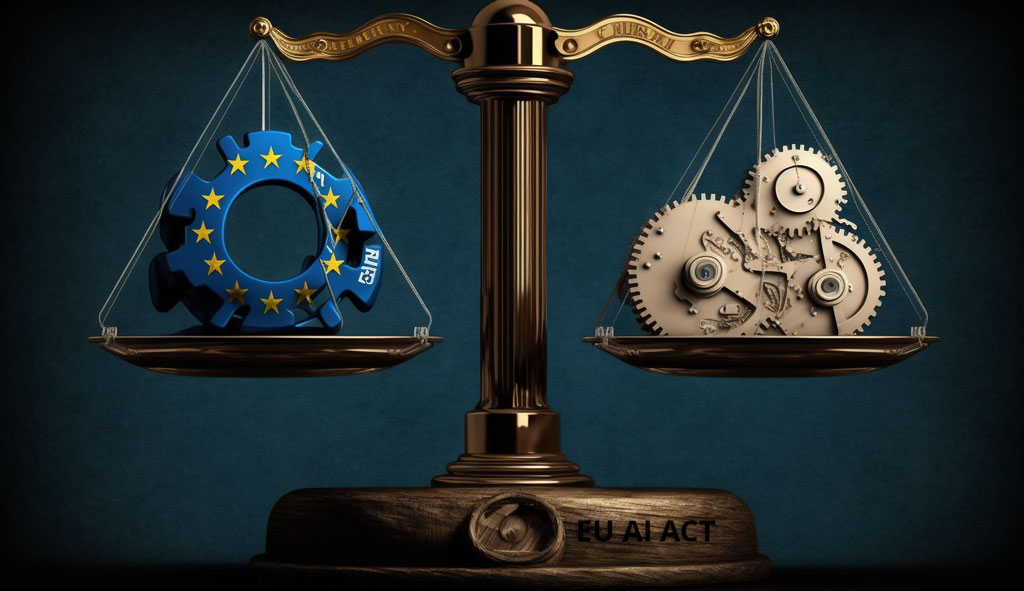On April 21, 2021, the European Commission introduced the EU AI Act, a proposal aimed at establishing the first set of regulations for artificial intelligence within the European Union. Fast forward two years, and the urgency for such regulations has grown due to the rising popularity of AI systems like ChatGPT. Crafting effective AI regulations is a challenging task, but it could ultimately shape Europe’s future as a potential AI powerhouse.
At present, the United States and China lead the world in AI technology, with the US enjoying a significant advantage in the realm of software development. Home to numerous tech giants, the US has already secured a head start in AI with advancements like ChatGPT. However, the race is still in its early stages and could quickly gain momentum.
With the right regulatory framework and support, new AI-driven tech companies could emerge and thrive within the EU. But the question remains: can the EU make swift decisions to keep up in this race? Striking the right balance is critical, as overly lax regulations could lead to extreme consequences, both positive and negative. Conversely, overly strict regulations may hinder AI progress.
Regardless of the final form the EU AI Act takes, effective monitoring will be essential. Monitoring AI, however, poses its own set of challenges as AI systems become increasingly human-like. As we navigate these uncharted waters, one thing is certain: we may not be fully prepared for the rise of AI, but humans have always excelled at adaptation. We will adjust and adapt to whatever the AI future has in store for us.
The EU AI Act stands as a testament to humanity’s resolve in addressing the ethical, legal, and social implications of artificial intelligence, while simultaneously nurturing innovation and growth in this transformative domain. Envisioned as a comprehensive framework, the Act seeks to categorize AI systems based on their risk levels, enabling tailored regulations for applications that vary in their potential impact on individual rights and public safety.
As we embark on this bold journey, fostering collaboration across the continent becomes paramount. By uniting member states, academia, and industry stakeholders under a shared vision, the EU AI Act aims to establish centers of excellence where innovation and entrepreneurship thrive. This collaborative approach could propel Europe to the forefront of AI research and development, bolstering its competitive edge in the global arena.
In the crucible of AI advancement, the mettle of a region is tested by the caliber of its workforce. To triumph in the AI race, the European Union must invest in education and training programs that cultivate the talent needed to drive the technologies of tomorrow. By equipping its citizens with the necessary skills, Europe can transform itself into a hotbed of AI innovation.
An unwavering commitment to responsible AI development lies at the heart of the EU AI Act. By establishing ethical guidelines, the Act endeavors to build trust in AI technologies among European citizens and businesses alike. In addition, the Act recognizes the importance of preserving privacy and protecting personal data, addressing the concerns that loom large in the minds of many.
The global nature of AI, akin to the boundless expanse of the internet, demands a cooperative approach that transcends borders. As such, the European Union must forge alliances with other major players, including the United States and China, and engage the United Nations in the pursuit of a worldwide AI regulatory framework. Through these collaborative efforts, we can pave the way for international AI standards that promote responsible development across the globe.
In navigating the uncharted territory of AI, open and honest discourse among all stakeholders is vital. Engaging in inclusive discussions that reflect the diverse values and needs of European society, we can ensure that AI policies are grounded in the collective wisdom of the continent.
In summary, the EU AI Act presents a unique opportunity for Europe to emerge as a global leader in the responsible development and deployment of AI technologies. Striking the perfect balance between regulation and innovation is the key to unlocking the potential of this exciting new frontier. Though the road ahead may be fraught with challenges, with determination and a shared commitment to ethical principles, Europe can shape the AI era for the betterment of all.


